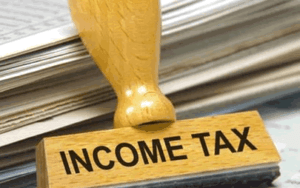Pay your taxes to move Ghana beyond aid – RCC
 Alhaji Abdulai Abubakari, the Coordinating Director of Upper West Regional Coordinating Council (RCC), has called on Ghanaians to accept to live up to their tax obligations to enable government realize its goal of moving Ghana Beyond Aid.
Alhaji Abdulai Abubakari, the Coordinating Director of Upper West Regional Coordinating Council (RCC), has called on Ghanaians to accept to live up to their tax obligations to enable government realize its goal of moving Ghana Beyond Aid.
He said the only way government could achieve it developmental agenda and bring progress to everybody was for every Ghanaian to contribute their quota by paying their taxes.
“Let us all be law abiding citizens”, he added.
Alhaji Abubakari was speaking at a tax education seminar held in Wa by the Ghana Revenue Authority (GRA).
The goal was to aid the people to have better understanding of why they needed to pay tax.
Mr Henry Atampugbire, the Wa Sector Commander of Customs Division of GRA, said the division was seeking to ensure that there was tax compliance.
The GRA customs division is one of the three divisions mandated to assess, collect, protect and account for all indirect tax revenues on imports and selected exports.
It is also to make sure that all customs laws on prohibited and restricted goods in Ghana are enforced.
He said inadequate human resource was one of the major challenges affecting their operations in the region.
In 2017, the division had staff strength of 108 but the figure was now down to 62, he added.
He said the removal of barriers along the roads from the frontiers to other parts of the country had resulted in the diversion of transit goods into the local markets without the payment of custom duties and other taxes.
Mr Ebenezer Mensah, Acting Assistant Commissioner of the Wa Domestic Tax Revenue Division of GRA, reminded all income earners to make sure that they paid their taxes.
“Taxes collected, direct or indirect, domestic or foreign, levies, duties, interest, penalties are used to develop the country’s infrastructure and payment of government workers.”
He said the creation of statutes and tax laws were constantly being reviewed to address development challenges facing the economy.
It was in the light of this, that there was the need for regular tax education to enable tax payers and potential tax payers become well informed about new policies and regulations on taxation.
Source: GNA
